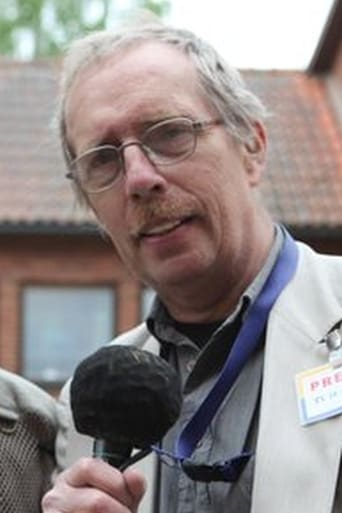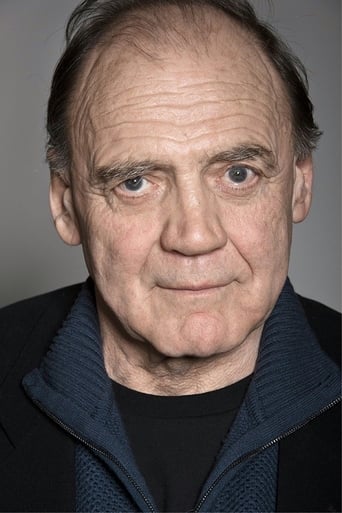WasAnnon
Slow pace in the most part of the movie.
ChicRawIdol
A brilliant film that helped define a genre
MusicChat
It's complicated... I really like the directing, acting and writing but, there are issues with the way it's shot that I just can't deny. As much as I love the storytelling and the fantastic performance but, there are also certain scenes that didn't need to exist.
Voxitype
Good films always raise compelling questions, whether the format is fiction or documentary fact.
gring0
A documentary worthy of the work of Richard J Evans, looking in depth at the importance f art to the NSDAP regime and top Hitler's weltpolitik. However, I'm not clear as to why many reviewers have singled out Sam Gray's narration for particular derision. True, there are a couple of instances where his pronunciation is not perfect, such as Berchtesgaden, and referring to "the Grecian capital" seems strange, but then he's American and perhaps it's like others referring to Beijing as Peking; to each his own. One can also hear gasps of air and creaking of chairs, particularly when Hitler's Berghof chalet is described which seems a bit careless of the producer, and the sounds of birds chirping during Hitler's three hour tour of Paris are incongruous to say the least. However, Gray's narratives competent and judicious which is not surprising as he has played judges and doctors for so long on television: Judge Greenspan in The Sopranos, Judges Chabot and Leon in Law and Order, Dr. Hough in Equal Justice, Judge Weiss in the film Suspect, Dr. Henry Spivak in C.A.T. Squad, Judge Kaufman in Concealed Enemies, Judge Mineon in Rage of Angels, Dr. John Wolff in Hanky Panky and Dr. Bernstein in A Little Sex. Remark has also been made as to this monotone delivery but, again, I don't know how else he should speak- in the same excitable manner as that of the German propaganda films? www.tracesofevil.blogspot.com
Tabarnouche
The film approaches the Nazi period from a refreshing angle: the seldom-documented (in film) visions that informed official Nazi aesthetics, given priority by a host of top Nazis who, like their Fuehrer, were failed artists. It offered a number of insights, such as the role played by architectural sketches Hitler had made in his youth and the future propaganda value of gargantuan Greek-influenced architecture (e.g., Reich buildings were designed to decompose along the lines of Roman ruins so as to impress archaeologists centuries later).But the English narration by Sam Gray was so atrocious that it was difficult to separate it from the visual and conceptual qualities of the film itself. Imagine a Beethoven symphony where the strings are played without passion and several beats off from the other sections – no reflection on the composer, but still hard to listen to. So great was the impact of the narration, in fact, that I expected to see ratings averaging 5 or 6 (my vote) on the IMDb site. Gray's uneven, indifferent inflection applied to a script he clearly (to judge by his mispronunciations) had not familiarized himself with gave the film an amateurish quality that it surely did not have in the original Swedish or the German versions. Moreover, the English translation, done by a German, was awkward in places.As tragic an oversight as the choice of the English narrator was, Peter Cohen and the producers ultimately retain responsibility for letting it pass, especially since Cohen had worked in English before. Any educated native English-speaker asked to review it would have cautioned them, after a single listening, not to underestimate how much the narration undermined its effectiveness. Engaging another narrator surely would not have broken the budget.Had I the choice, I'd see this film again with the Swedish or German narrations, subtitled in English.
amsvegas
This is an excellent documentary and exposé into the psychology and ideals that, in great part, were responsible for Hitler's passion and vision that would drive the dynamics of Germany's politics. As absurd and surreal his ambitions may have been... there was a part of his dream that oddly seems honest and noble but character flawed. By no means should anyone admire the reality of his vision but be fascinated by how fast and furious Hitler and the Nazi doctrine brought a crushed post WWI Germany and its people to the brink of world domination in less then a decade. Indeed Hitler was an example of extreme self anointed indulgence and a deluded fantasy that millions paid the price by being murdered and exterminated as human vermin. A tragedy and a mind that I hope will never see the light of day ever again.Highly recommended 9/10
kev-22
"The Architecture of Doom" is the best surgical picking apart of Hitler's brain I've seen. It thoroughly examines Hitler's aesthetic worldview and how it could have lead to an artistic obsession to recreate the world to fit that vision. Its thoroughness is something Hitler himself might have admired! However, the power of this film is regrettably blunted quite a bit by the poor English narration. Perhaps Bruno Ganz's original narration with subtitles would have been better--though I haven't seen the latter to say for sure. In any case, narration is crucial in films like these (For a great example, listen to Trevor Howard in "Memory of the Camps"), and this lifeless, inflectionless reader really hurts a film that deserves a lot better treatment.

